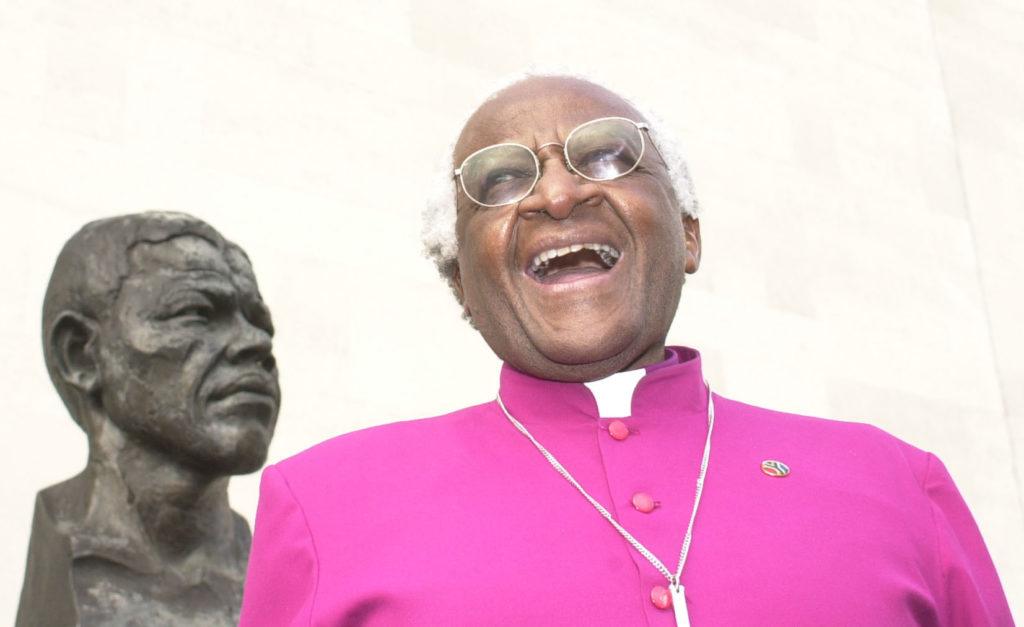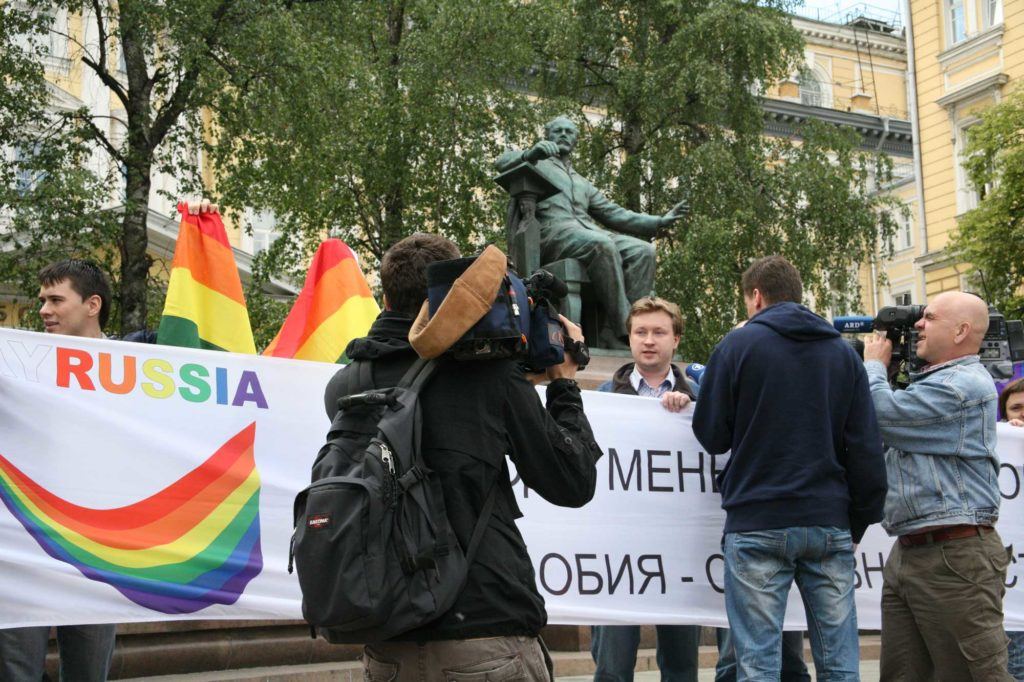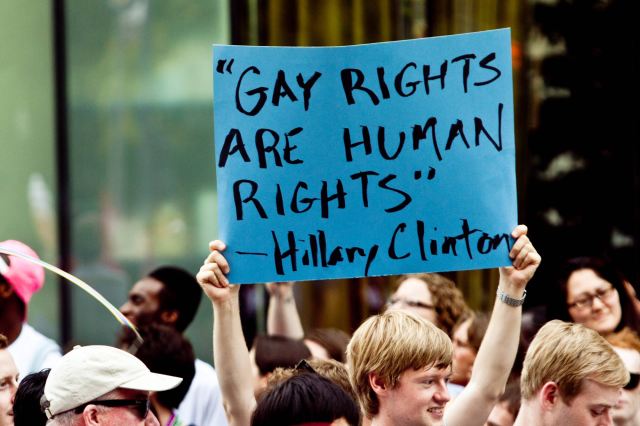By ep_jhu (https://www.flickr.com/photos/ep_jhu/5823033786/) [CC BY 2.0 (https://creativecommons.org/licenses/by/2.0)], via Wikimedia Commons

Let’s call him Joe. That is not his real name but he seemed an Honest Joe. He worked in a local government frontline job and I met him covering the opioid epidemic in Ohio. It was a fascinating assignment – partly because the scale of the crisis is so mind-blowingly acute (see The Feed for more), and partly because this was one of the key swing states that handed the White House to Donald Trump.
So I had chance to chat at length to several voters who shifted to the populist billionaire Republican. They included a senior public official who, when I talked about visiting Damascus and reporting on the refugee crisis, asked me what Syrians were really like; he had obviously overdosed on Fox TV. But for all their myopic hostility to some outsiders and hatred of distant elites, these were decent people living in often-distressed communities that felt a long way from Washington.
I talked to Joe about his support for Trump, about serving in the Marines, about the opioid crisis, about life in his home town. He was warm and well-informed, still supportive of the president but wishing Trump would shut up on social media. Then the subject of gay rights came up. Joe admitted that he used to joke with his buddies when he saw ‘faggots’ in the street, having been brought up in a world that viewed homosexuality as an aberration like so many in Middle America. This is, remember, a far more religious country than our own.
Joe told me that about six years ago, a family member invited him to a civil union with her partner. He recoiled at the idea and refused to attend such an diabolical event. But then he began to talk more with her and to hang out with a gay man at his workplace. ‘This guy was the funniest guy I ever met and so good at his job,’ he said of his colleague. Slowly but surely, his hardline views shifted as he saw there was nothing to fear from people with differing sexuality to his own. That they were just ordinary men and women.
So much so that when his relative invited him recently to her same-sex wedding following a change in the law, he was happy to attend. So what would he do if he heard someone make a homophobic comment now? ‘I guess I would shrug it off at work, maybe mention it, maybe not – but if it was to my relative’s face I’d punch them,’ he replied. By the end of our conversation he confessed to having even been to a drag show, smiling as he told how his wife was so amused by the star flirting with him to his squirming discomfort.
Joe’s story in many ways underlines the march of gay and lesbian equality. It may have felt frustratingly slow for campaigners as they struggled against bile and bigotry. Yet in societal terms, change has come astonishingly quickly. I remember the hideous jokes made on this subject in my childhood playgrounds, the crass caricatures deemed acceptable on prime time television comedies, the tabloid newspaper coverage when an Aids epidemic exploded, the ban on ‘promotion’ of homosexuality as ‘a pretend family relationship'[1. This was the language of a British law, known as Section 28, introduced in the late 1980s and repealed in 2003 (BBC report).].
Public opinion has moved decisively in favour of legalising homosexuality… and same-sex marriage
Three decades later, battles remain but the war is being won. Some reactionaries keep fighting, of course, thinking they can still stop or at least slow the sea-change. But Joe’s rapidly-changed attitudes mirror those of his nation. A decade ago, his fellow citizens opposed same-sex marriage by 54% to 37%. The latest Pew survey found roughly two-to-one support for allowing gays and lesbians to marry legally, support jumping seven points over the past year [3. From Pew Research, June 2017 – ‘Support for Same-Sex Marriage Grows, Even Among Groups That Had Been Skeptical‘]. This reveals a massive leap forward in tolerance – and all within less than a generation.
It is a similar story in Britain. There were 45 openly gay MPs elected at last year’s general election, with equal numbers on Tory and Labour benches[4. PinkNews lists the number of MPs, including 19 Tories and 19 on the Labour benches] – an increase of six on the previous parliament and claimed as highest proportion anywhere in the world. How absurd that right-wing furore over same-sex marriage now seems, not least when even opposition to gay adoption is fast dissolving. When misanthropes such as the Tory MP Jacob Rees-Mogg argued that extending marriage opportunities to all alienated ‘traditional’ supporters, they merely underscored how out of touch they were with the wider public.
This speed of change in face of fierce opposition underlines why we should not despair on one of the critical human rights issues of our age. Yes, the horror stories continue: people accused of being gay thrown off buildings in Iraq, hanged in Iran, tortured in Chechnya, jailed in Egypt. From Russia to Uganda, conservative and nationalist politicians whip up hatred against gays and lesbians that result in abuse and attacks. Tanzania is the latest exponent of this sordid politics, with threats of expulsion against gay rights campaigners and the president bizarrely claiming ‘even cows disapprove’ of same-sex relationships.

Yet the global picture is improving each year. The most recent edition of the annual ‘State-Sponsored Homophobia’ study revealed there are 72 countries that criminalise same-sex consensual activity. Clearly this is 72 nations too many – and in eight of them the death penalty is used to punish people falling in love with someone of the same sex. Yet even these figures indicate rapid global progress: when the survey began in 2006, there were 92 nations where homosexuality was a criminal offence [2. The 2006 report from the International Lesbian and Gay Association – ‘With the government in our bedrooms‘].
It was only at start of this century that Holland became the first place to sanction same-sex marriage. Already 24 others states have followed suit, with Malta – a predominantly Catholic island – the latest. These advances may have been led by Europe but this is far from just a Western picture of progress. Argentina, Brazil and Uruguay allow same-sex marriage while South Africa legislated seven years before Britain. Nepal – a place where members of the LGBT community were once mocked as ‘social pollutants’ – was hailed earlier this month by Human Rights Watch as a global beacon on this front.
The next looming battle is for transgender rights, as proved by Trump’s cruel ban on serving in the military and murders in many places. From public services to sport this throws up some tougher questions, but solutions must again be founded on principles of decency, equality and respect for individuals. Already we can see signs of society fumbling its way towards to a more progressive place, despite predictable furore over each small step forward from healthcare to identification and schools. These transformations show how fast both Ordinary Joes and wider society can move when challenged – and how behind the headlines, humanity can progress with astonishing speed.











Join the discussion
Join like minded readers that support our journalism by becoming a paid subscriber
To join the discussion in the comments, become a paid subscriber.
Join like minded readers that support our journalism, read unlimited articles and enjoy other subscriber-only benefits.
Subscribe